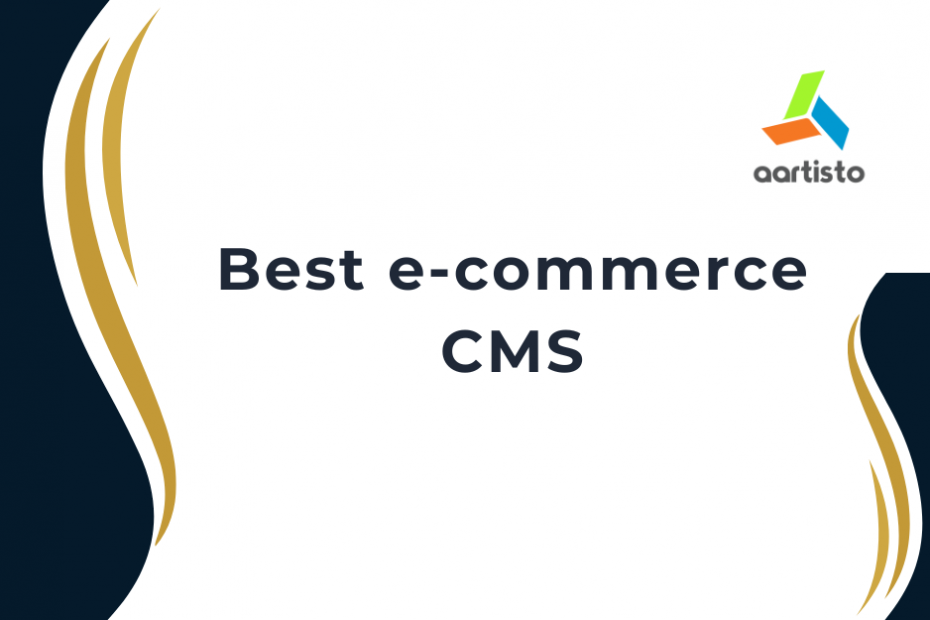What is an Ecommerce CMS?
A content management system (CMS) is software that helps eCommerce store owners create, edit and publish digital website content without writing any code. It allows users to change the look and feel of an online store, such as changing the product page layout, adding ad banners, or quickly adding new website sections to better promote products.
An eCommerce platform is an online shopping cart solution that helps you handle product management and sell products directly through your website. Some eCommerce sites also serve as CMS and hire CMS developers. In other words, it is a user-friendly infrastructure that handles all the back-end store management functions of an online store.
SaaS CMS
A hosted SaaS CMS is a cloud-based solution for eCommerce stores that does not require a separate server. You pay a subscription fee, and in return, you don’t need to download anything, manage updates, or set up data storage — all of that is taken care of by the software vendor.
Open-source CMS
With open source eCommerce platforms, users have complete control over website functionality. Open source software is free to download and often self-hosted. This means that store administrators are responsible for finding hosting for their eCommerce website, maintaining the server, and installing software updates when needed.
Do You Need a Separate CMS?
Until now, you might not have considered the option of not having a separate CMS. But it is important to note that not every eCommerce store needs a content management system. The best way to determine if your online store needs a separate CMS is to weigh your content strategy plans.
Ecommerce sites that create new content regularly – as part of a blog or homepage and product page updates – can benefit most from the flexibility of a CMS. However, if your store doesn’t need regular, real-time content updates, you can build your site without one.
12 Best Ecommerce CMS Platforms
Now, protect yourself. There are so many CMS platforms for eCommerce that it makes choosing one very difficult. This list is only the tip of the iceberg, but it’s a great place to start your search and find the most popular options out there.
BigCommerce
One of the most prominent eCommerce platforms on the market, BigCommerce supports over 60,000 merchants of all types and sizes. With many built-in features and CMS capabilities, the BigCommerce platform is powerful enough to facilitate the growth of fast-scaling eCommerce businesses and intuitive enough to empower complete eCommerce beginners. It caters to the entire spectrum of the e-commerce industry.
WordPress
WordPress is the most dominant CMS player in the industry, but it is not an eCommerce platform. To turn a WordPress site into an online store, you need the WooCommerce plugin.
Incredibly popular, the open-source WooCommerce platform is loved for its immense selection of extensions and themes – most of which are available for free.
Drupal
Although Drupal is not specifically designed for eCommerce, it can be integrated with various plugins and frameworks to enable eCommerce functionality. It is one of the most widely used open source content management systems, as popular as WordPress or Joomla. Unfortunately, Drupal is not particularly user-friendly for those without significant development knowledge.
Joomla
Joomla is another open-source content management platform that helps users create websites and publish content online. Although commerce is not a part of its core functionality, many free extensions can help turn a Joomla site into an eCommerce store.
Sitecore
Sitecore is a leading digital experience platform that combines content, commerce, marketing automation, and personalization with design and editing tools. The platform enables merchants to design and build digital storefront experiences and deliver personalized commerce journeys.
Magento
Magento is a popular open-source CMS for eCommerce solutions. Owned by Adobe, it has an excellent reputation and supports over 260,000 online stores worldwide. Including integrations with CRM, ERP, chatbots, and other solutions, Magento offers rich functionality and a diverse extension market.
Shopify
Shopify is one of the most well-known SaaS eCommerce platforms in the world. Thanks to its simple interface and affordable price, it has become a popular eCommerce platform for startups and small businesses. However, that’s not to say big brands can’t use a CMS. The number of features depends on the type of plan you choose, so it’s a good idea to read the list of features before signing up.
Prestashop
Prestashop is another open source platform with MySQL data management and extensive backend code customization. It has a wide variety of add-ons and themes that help merchants create an online store from scratch with minimal technical skills. However, consider the total cost as some extensions are quite expensive.
OpenCart
Yet another open-source content management system for eCommerce, OpenCart is a free and multifunctional solution. It offers a collection of templates for quick setup and has a thriving plugin market. OpenCart integrates with over 20 payment gateways and eight shipping methods. As an eCommerce CMS with no monthly fees, it is a popular option among newbies with small budgets.
Wix
Wix is the leading drag-and-drop website building platform for online business. Although it is not technically an eCommerce CMS, website owners have the option to add a business module if they need it. With a variety of templates, built-in features, and a no-code approach, Wix is an attractive option for absolute beginners and non-coders alike.
